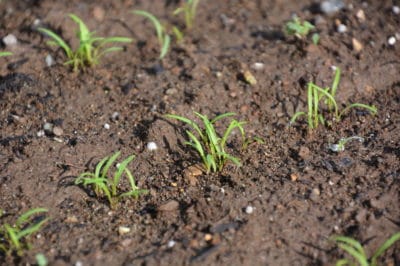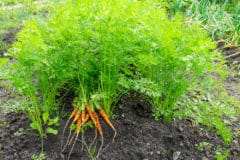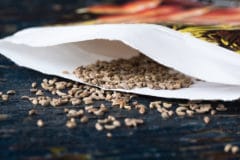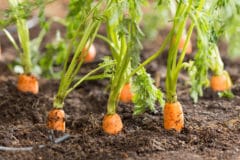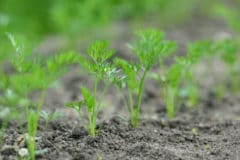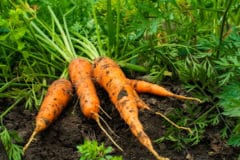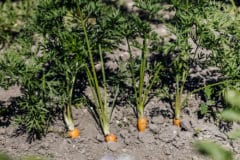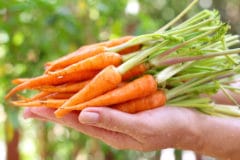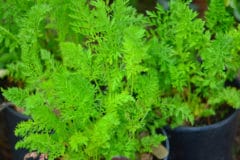Picking the Right Seeds
There is no particular carrot variety that is easier or harder to germinate, so the choice is simply a matter of your preference. Orange carrots, or black, white, or even purple? Long thin roots or fat ones? Simply choose the variety of carrot you want and get ready to plant.
Prepare and Plant
- Your seeds will germinate better in properly prepared soil. Carrots need loose, sandy soil that they can easily push through as they grow, so adding some sand to your garden may be a good idea.
- Seeds should be planted in soil that has been tilled to a depth of at least eight inches.
- Fertilizer is not necessary, but should you choose to feed the soil before planting, lean toward compost or other organic options that contain potassium which will encourage strong, healthy roots; carrots are a root vegetable.
- Plant your carrot seeds in full sun, about three to four weeks before the last spring frost is expected. Your seeds need the cooler weather to grow properly; later in the year, the cool weather will also make them sweeter and tastier.
Water and Wait
Once you’ve seeded your garden plot, be sure to keep your seeds moist. In warmer areas, you may find that near-constant watering is your best bet. Carrot seeds require plenty of water in order to successfully germinate. Do be sure to water gently in the beginning; carrot seeds are small and easily disturbed.
It isn’t necessary yet to mulch your plants. While mulch will help hold moisture in the ground, your carrot seeds will do better now if they’re uncovered. Later in the season, mulching may be done, but not now.
Signs of Success
About three weeks after planting, you will begin to see tiny little carrot sprouts peeking up out of the soil. Your seeds will likely germinate over the course of a few weeks, not all at once, and some may not germinate at all, although most will.
With continued watering and care eventually, your carrot patch will show starts everywhere, and over time, these sprouts will grow into leafy, lacy green tops and healthy root vegetable plants over time.
